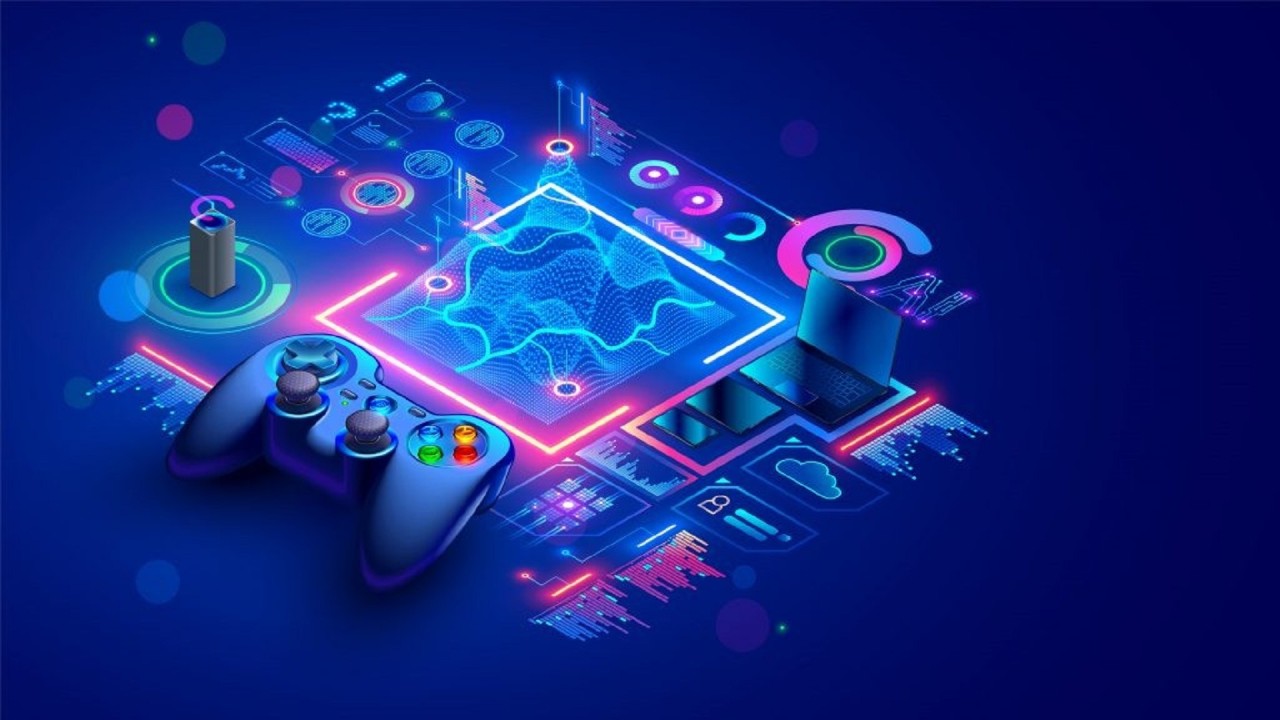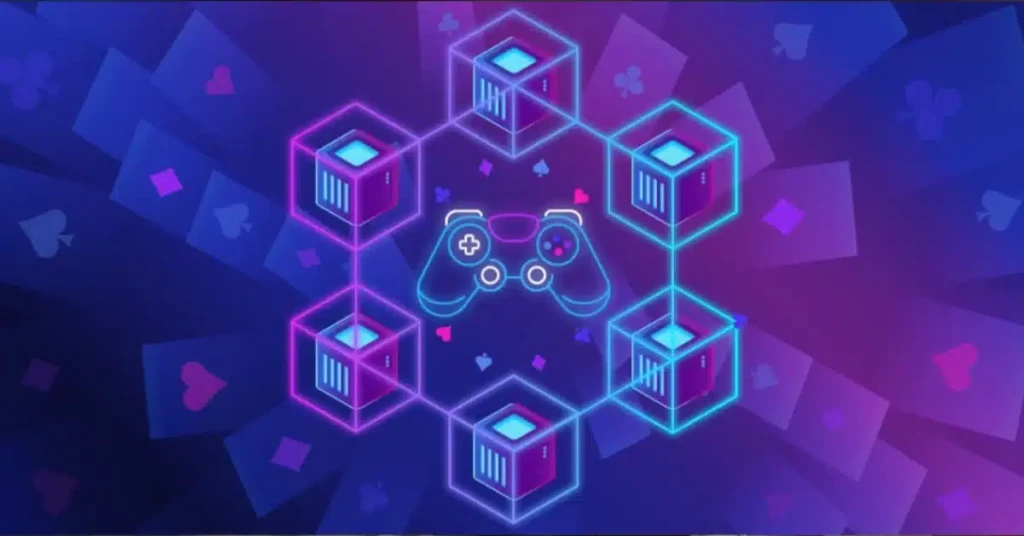Think about the biggest names in gaming. What do they all have in common? Sure, they create mind-blowing graphics, addictive gameplay, and worlds we can lose ourselves in for hours. But behind the scenes, there’s something even more important in keeping everything running smoothly scalable software development.
Gaming is no longer just about making a good game; it’s about keeping up with millions (sometimes billions) of players without breaking the system. Fortnite, for example, has over 400 million registered users, and during peak times, it handles over 12 million concurrent players. Now, imagine if their servers weren’t built to scale. Disaster.
For business owners in the gaming space, scalability is non-negotiable. Whether you’re developing the next big MMORPG or a simple mobile puzzle game, you need a system that can handle demand spikes, process microtransactions seamlessly, and offer security at every turn. This is exactly why blockchain is changing the game literally.
Why Scalability Matters (And What Happens Without It)
Let’s step outside of gaming for a second.
Amazon handles $8,114 in transactions per second. Netflix serves over 250 million subscribers without buffering disasters. These companies don’t just have good software; they have scalable software. The ability to grow without technical meltdowns is what separates the greats from the startups that never make it past year one.
In gaming, the challenges are even bigger. You’re not just dealing with customers buying a product; you’re dealing with:
- Real-time multiplayer interactions
- Digital asset ownership
- Secure in-game economies
- Cheating and fraud prevention
- Cross-platform experiences
If your game isn’t built for scale, it won’t just crash; it’ll burn out before it ever takes off. This is where blockchain comes in as a game-changer, offering security, decentralization, and scalability in ways that traditional gaming infrastructure never could.
How Tech Giants Use Scalable Software to Stay Ahead
Before we get into blockchain’s role, let’s look at some of the biggest tech companies and how they’ve used scalable software to dominate their industries. Because if there’s one thing business owners can learn from the giants, it’s how to think ahead.
Epic Games (Fortnite)
Epic Games built Fortnite on Unreal Engine, a platform that’s designed for scalability. They use cloud computing, dedicated servers, and microservices to handle millions of players simultaneously. More importantly, they adapted to blockchain trends by integrating blockchain-based asset ownership in some of their future projects.
Netflix
Netflix moved away from traditional data centers and switched to Amazon Web Services (AWS), allowing them to scale dynamically based on demand. When a new season of Stranger Things drops and half the world decides to binge-watch at the same time, Netflix doesn’t crash because their software is built to handle it.
Microsoft (Xbox Cloud Gaming)
Microsoft’s Azure cloud platform powers Xbox Cloud Gaming, allowing seamless streaming of AAA titles to any device. This eliminates the need for unnecessarily expensive gaming consoles and makes gaming more accessible worldwide. The kicker? Azure is already integrating blockchain-based identity verification and digital assets into its ecosystem.
These companies didn’t just build great products; they built infrastructures that could handle growth, evolution, and future technologies—like blockchain.
The Blockchain Revolution in Gaming
Now, let’s get to the juicy part. How exactly is blockchain rewriting the rules of gaming? If you’re a game developer, studio owner, or entrepreneur in the gaming space, this is the part where you start taking notes.
1. Digital Asset Ownership & NFTs
Right now, if you buy a cool skin in Call of Duty or a rare sword in World of Warcraft, you don’t actually own it. The game company does. If the servers shut down or your account gets banned, that digital item is gone forever.
Blockchain fixes this by allowing true digital ownership through NFTs (non-fungible tokens). Players can buy, sell, and even trade their in-game assets across different platforms, making gaming economies more player-driven.
Axie Infinity pioneered this by allowing players to breed, trade, and battle NFT-based creatures. Some players made over $100,000 just by trading these assets.
2. Play-to-Earn Models
Forget grinding for hours just to unlock a new character—blockchain-based games are turning gaming into an income source. Play-to-earn models reward players with cryptocurrency or NFTs that have real-world value.
Decentraland and The Sandbox let users buy virtual land, create content, and sell it for profit. Some virtual plots have sold for millions of dollars.
3. Improved Security & Anti-Cheat Measures
Cheating and fraud plague online games. Hackers exploit weak server-side security, ruining competitive experiences. Blockchain’s decentralized nature makes data tampering nearly impossible, keeping game environments fairer.
Ubisoft has been experimenting with blockchain-based anti-cheat solutions to create a more transparent gaming ecosystem.
4. Cross-Platform Gaming & Interoperability
Imagine earning a rare weapon in Game A and using it in Game B. Traditional gaming doesn’t allow this, but blockchain does. Since items are stored on the blockchain rather than a single game server, cross-platform gaming economies become possible.
Gala Games is building a multi-game blockchain ecosystem where assets can be used across different titles.
5. Decentralized Game Hosting
Most games rely on central servers owned by publishers. If those servers go down (or if the company decides to shut down the game), it’s gone for good. Blockchain allows decentralized game hosting, meaning the community—not just the company—can keep a game alive.
MIR4, a blockchain-based MMORPG, uses a decentralized network to ensure continuous gameplay even if the main publisher stops supporting it.
6. Smart Contracts for Transparent Transactions
One of the biggest issues in gaming is the lack of transparency in transactions. Whether it’s in-game purchases, prize winnings from tournaments, or marketplace trades, players often have to rely on centralized systems that may not always be fair. Blockchain introduces smart contracts and self-executing agreements that ensure transactions happen only when predefined conditions are met.
This eliminates the need for middlemen, reduces fraud, and builds trust between developers and players. For example, in blockchain-based games like Gods Unchained, every in-game purchase is secured by a smart contract, ensuring that players truly own their assets.
7. The Role of DAOs in Game Development
Game developers traditionally make all the decisions about gameplay, updates, and economy balancing. However, blockchain allows for Decentralized Autonomous Organizations (DAOs), where players get a say in the direction of the game.
Imagine a scenario where the community votes on new game modes, character updates, or even rule changes—and those votes directly impact development decisions. Games like Illuvium and Axie Infinity already use DAOs to involve their player base in governance. This level of transparency and community-driven development is unheard of in traditional gaming models.
The Environmental Debate: Is Blockchain Gaming Sustainable?
While blockchain gaming offers many benefits, there’s a major debate about energy consumption. Many blockchains, especially those using Proof of Work (PoW), require significant computing power, which raises concerns about their environmental impact.
However, newer blockchain networks like Ethereum 2.0 (Proof of Stake) and Polygon are far more energy-efficient, reducing the carbon footprint of blockchain gaming. Game developers looking to go blockchain should consider eco-friendly networks to avoid backlash from environmentally conscious gamers.
Challenges Blockchain Gaming Still Needs to Overcome
Despite its potential, blockchain gaming isn’t without its challenges. Here are some key issues that need to be addressed:
- User Adoption – Many gamers are still unfamiliar with blockchain, wallets, and NFTs, making onboarding difficult.
- Scalability Issues – While blockchain enhances scalability, network congestion can still cause transaction delays.
- Regulation & Compliance – Different countries have different laws on digital assets and cryptocurrency, which can affect blockchain-based gaming models.
Developers and businesses entering this space must stay ahead of these challenges by focusing on education, choosing scalable blockchain networks, and complying with emerging regulations.
Why Business Owners Should Pay Attention
Blockchain gaming isn’t just a trend—it’s a fundamental shift in how games are developed, monetized, and played. For business owners, ignoring this shift could mean missing out on massive opportunities.
- New Revenue Models – Play-to-earn, NFT trading, and decentralized economies open new streams of income.
- Better User Retention – Gamers are more likely to stick around when they have real ownership of in-game assets.
- Lower Fraud & Cheating Risks – Blockchain-based verification reduces scams and unfair gameplay.
- Cross-Platform Expansion – The ability to transfer digital assets across multiple games creates more engagement and loyalty.
Where Do We Go From Here?
Gaming is evolving faster than ever, and blockchain is leading the charge. While traditional gaming models won’t disappear overnight, we’re entering an era where digital ownership, decentralized economies, and play-to-earn opportunities will become the new normal.
For game studios, developers, and investors, the choice is simple: adapt and innovate or get left behind. The real winners in this space will be the ones who embrace blockchain’s potential before it becomes standard.
So, are you ready to adopt blockchain technology in gaming? If your answer is yes, Portland Software Developers is here to help.


